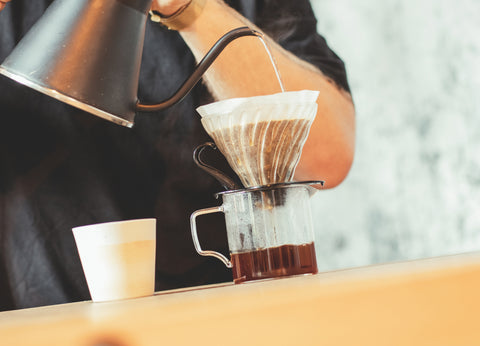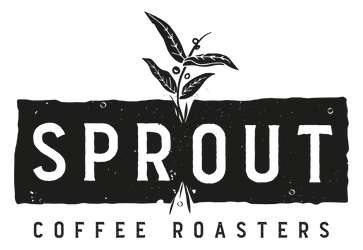
Hernandez
Lime, White Grape, Eucalyptus


Brew Advice
V60
Coffee In: 17g
Water In: 255g
Time: 2.30-3.00 minutes


About this Coffee
Cata Exports have been working with Los Nogales for 4 years, finding homes for several of their coffees not only in some of the best cafes in the world but in multiple national and international competitions. The farm is nestled high
in the lush mountains of Bruselas, where the team cultivate and care for a vast range of exotic varietals. With
a lot of work little by little The Los Nogales farm has become a hub for research and innovation where both
technologies and biotechnologies are embraced with the goal to improve the coffee production systems both
in the farm and wet-mill procedures. So whether it's harvesting, soil management, fermentation, microbiology
or how coffee is transported the teams aim is to continue revolutionising the world of coffee.
Most recently, Oscar & the team took a trip to some of the best farms in Panama where they gained new
inspiration with regards to managing both the soil and the coffee trees. This has meant a lot of changes for
the teams farm management, Oscar always talks about the coffee plants like a human diet. It isn't enough
just to talk about organic matter, there needs to be a consideration of how to produce the vitamins and
minerals required to enrich the soil and give the plant the best all round diet to grow exceptional coffee
cherries. Panama also got the team thinking a lot about their drying process, and since their visit early in the
year they have now built a dark room for drying which will allow them to start making exceptional natural
coffees with their exotic varieties. Removing light prevents the growth of fungus and with the control of
temperature and humidity in the room they can really fine tune flavour profiles in these natural fermentations.
This year, Nogales have worked a lot on defining their philosophy which has resulted in 3 key areas, terroir,
genetics and science. The team believe it is not just about the soil and the plant, or just about fermentation or
just about varietal but that it is a symbiotic relationship between everything and they are striving to learn as
much as possible in all areas, placing Nogales as one of the most forward thinking and innovative farms
today.
Nogales have now developed out their own flavour wheel which showcases the compounds generated by the
fermentation of coffee. They did this in a scientific form using an alcohol to identify what is happening inside
the fermented grains and what compounds can be found.
Geshas & Bourbons have a high quantity of lipids and for this they can have a really amazing textures and
bodies, but it also has the counter that these coffees lose their quality faster than those lineages with less
lipids.
Fertilization strategy is a large focus now, understanding how to build a well balanced diet for the soil and
therefore the coffee. Microorganisms, organic materials (house for the microorganisms) and minerals (food
for the microorganisms). This means there is a lot of work to do this in a natural form, with a variety of
nutrition that will make for a plant that produces cherries rich in aromatic compounds and everything
necessary for an exceptional cup.
A nojito in coffee form!
Process:
1. Selective picking of ripe Yellow Colombia cherries.
2. Collected fruits are then cleaned and disinfected in treated water to remove any surface dirt and
impurities. In this same step the low density cherries float and are removed to keep only the best
quality for this lot.
3. Coffee undergoes a thermal shock by being immersed first in hot water of 80 degrees for 1 minute
and then 15 degrees for 3 minutes. This releases more glucose from the coffee and eliminates
unwanted microorganisms, two important points for better quality fermentations.
4. Coffee beans are then pulped without water and the teams customised pulper also adds the step of
squeezing the removed coffee cherry to collect all of the yeast and sugar rich juice to be used for
fermentation.
5. This collected juice, the coffee and finally a pre-ferment (similar to a sourdough starter) are added to
a tank which is then sealed to ferment for 120 hours. This is where microorganisms will break down
the sugars and other compounds, contributing to the final flavour profile of the coffee.
6. After fermentation coffee is then solar dried for around 15 days.
This bad boy has outspoken vibes, similar to a Nojito - enjoy a mocktail morning with this coffee! We discovered notes of Eucalyptus and Lime that make this a nojito, along side a White Grape acidity and Red Apple sweetness to balance out this mocktail of a coffee.


